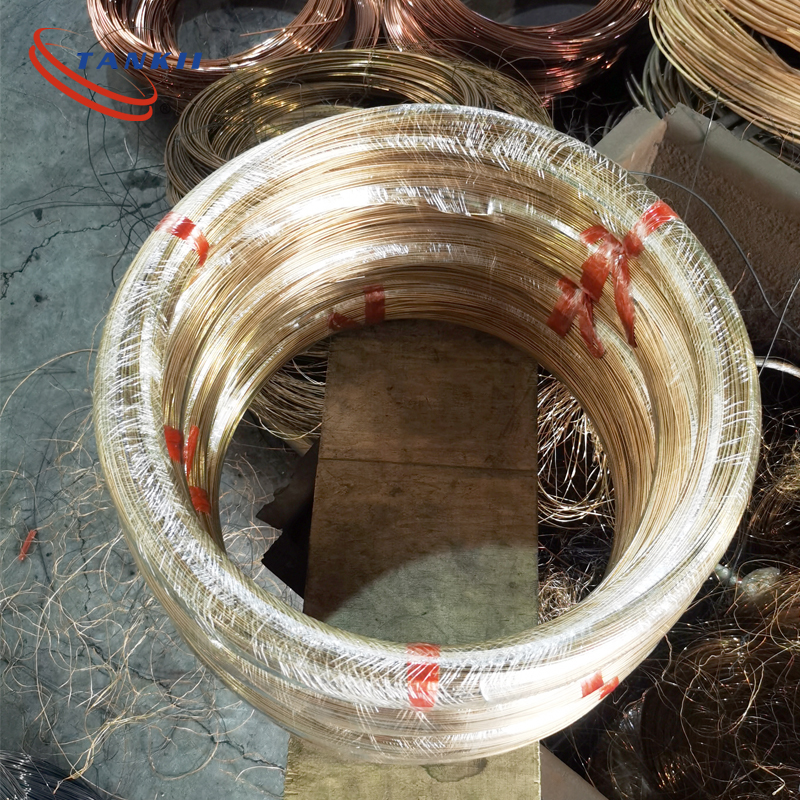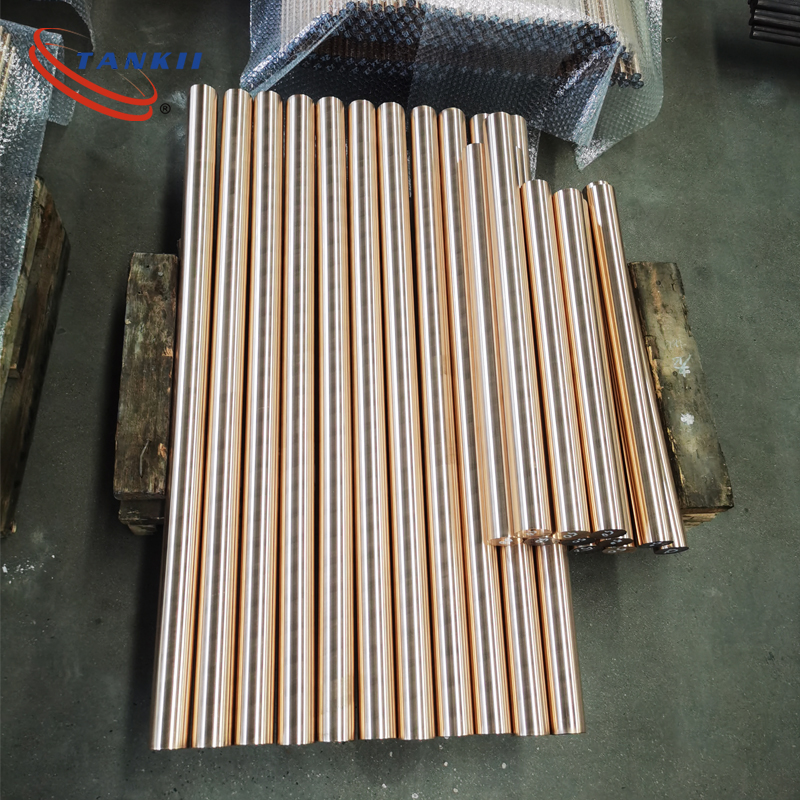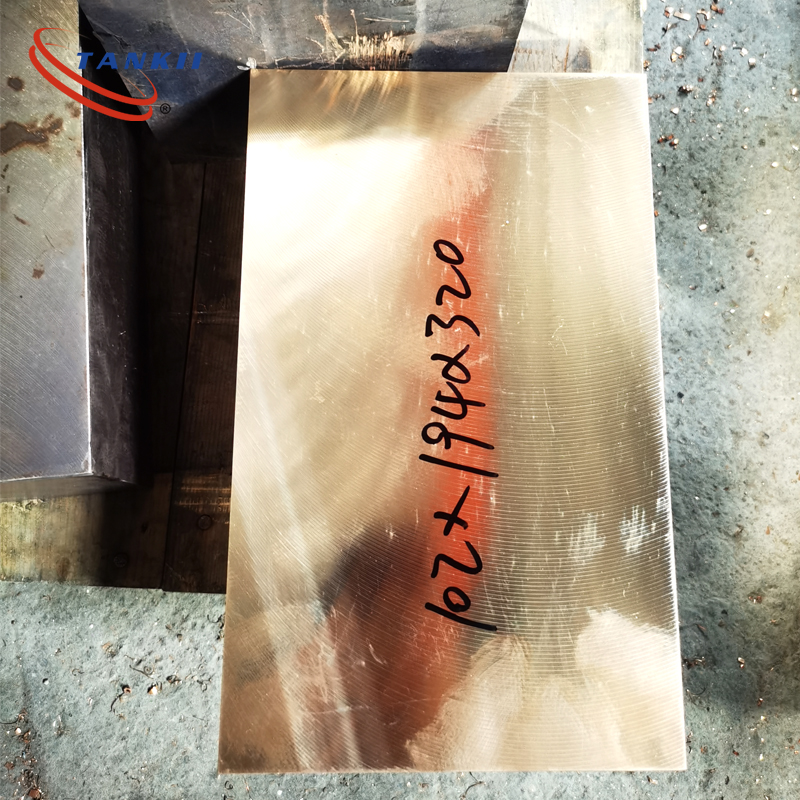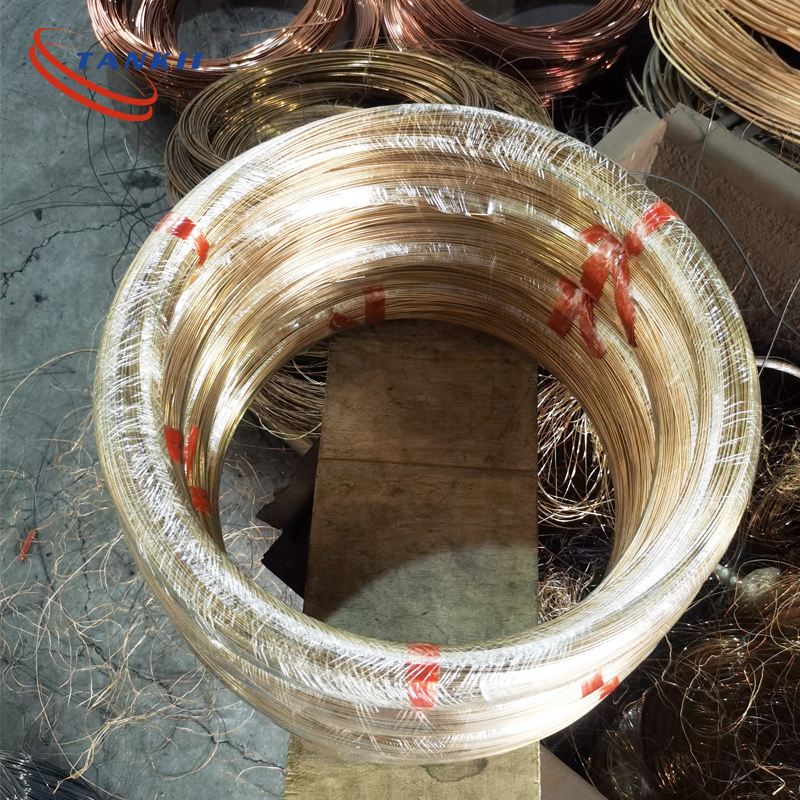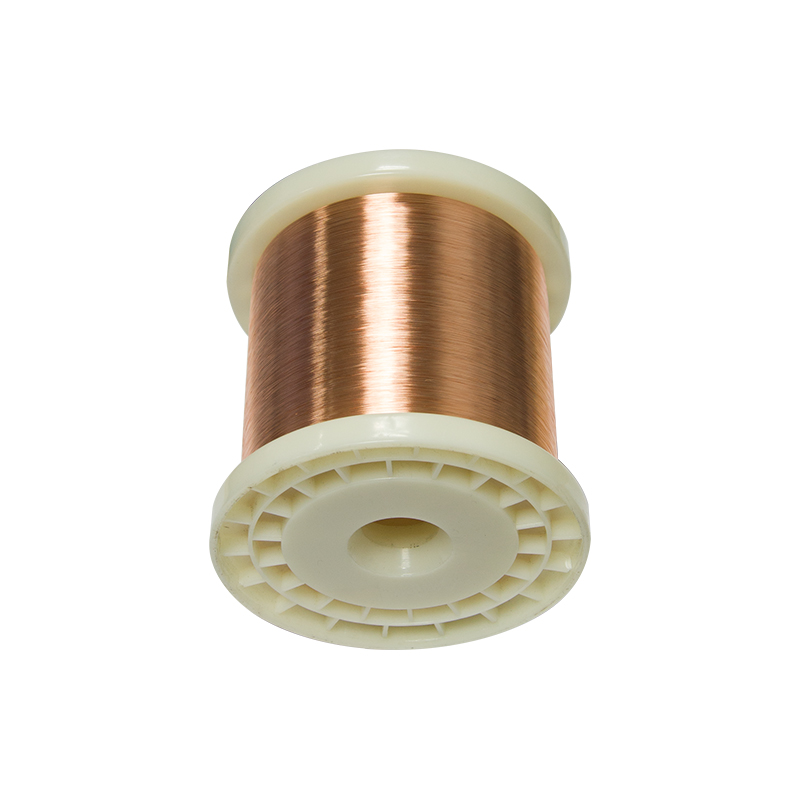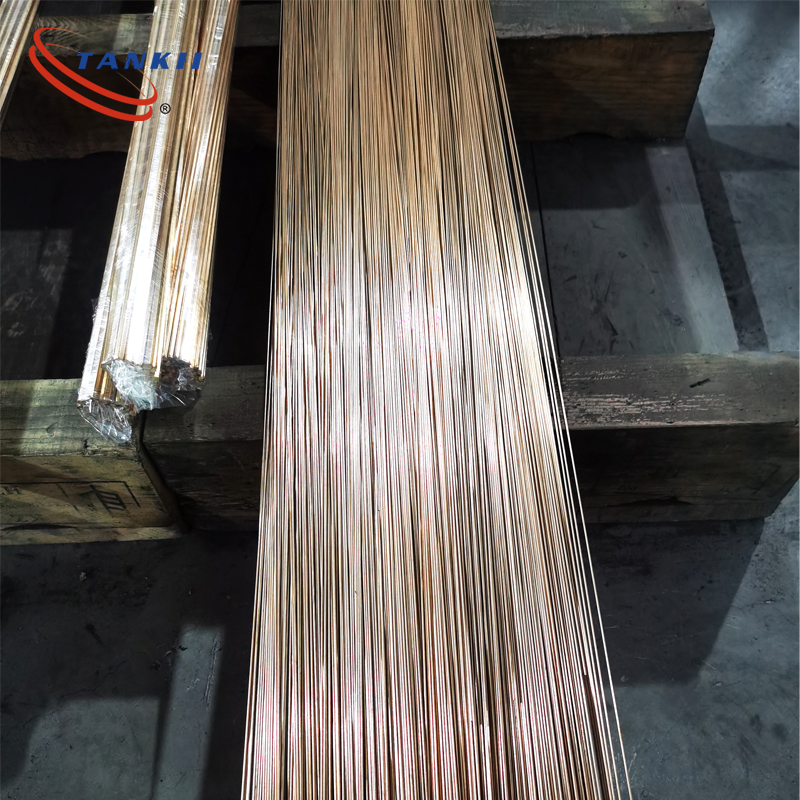Dia 0.6mm Alloy M25 Copper Beryllium Wires for Contact Bridges
Product Description
Chemical Composition (Weight Percent) of C17200 Beryllium Copper Alloy:
| Delivering Solutions | ||||||
| Alloy | Beryllium | Cobalt | Nickel | Co + Ni | Co+Ni+Fe | Copper |
| C17200 | 1.80-2.00 | - | 0.20 Min | 0.20 Min | 0.60 Max | Balance |
Remark: Copper plus additions equal 99.5% Min.
Typical Physical Properties of C172:
Density (g/cm3): 8.36
Density before age hardening (g/cm3): 8.25
Elastic Modulus (kg/mm2 (103)): 13.40
Thermal Expansion Coefficient (20 °C to 200 °C m/m/°C): 17 x 10-6
Thermal Conductivity (cal/(cm-s-°C)): 0.25
Melting Range (°C): 870-980
Common Temper we supply:
| CuBeryllium Designation | ASTM | Mechanical and Electrical Properties of Copper Beryllium Strip | ||||||
| Designation | Description | Tensile Strength (Mpa) |
Yield Strength 0.2% offset | Elongation Percent | HARDNESS (HV) |
HARDNESS Rockwell B or C Scale |
Electrical Conductivity (% IACS) |
|
| A | TB00 | Solution Annealed | 410~530 | 190~380 | 35~60 | <130 | 45~78HRB | 15~19 |
| 1/2 H | TD02 | Half Hard | 580~690 | 510~660 | 12~30 | 180~220 | 88~96HRB | 15~19 |
| H | TD04 | Hard | 680~830 | 620~800 | 2~18 | 220~240 | 96~102HRB | 15~19 |
| HM | TM04 | Mill hardened | 930~1040 | 750~940 | 9~20 | 270~325 | 28~35HRC | 17~28 |
| SHM | TM05 | 1030~1110 | 860~970 | 9~18 | 295~350 | 31~37HRC | 17~28 | |
| XHM | TM06 | 1060~1210 | 930~1180 | 4~15 | 300~360 | 32~38HRC | 17~28 | |
Key Technology of Beryllium Copper(Heat treatment)
Heat treatment is the most important process for this alloy system. While all copper alloys are hardenable by cold working, beryllium copper is unique in being hardenable by a simple low temperature thermal treatment. It involves two basic steps. The first is called solution annealing and the second, precipitation or age hardening.
Solution Annealing
For the typical alloy CuBe1.9 (1.8- 2%) the alloy is heated between 720°C and 860°C. At this point the contained beryllium is essentially “dissolved” in the copper matrix (alpha phase). By rapidly quenching to room temperature this solid solution structure is retained. The material at this stage is very soft and ductile and can be readily cold worked by drawing, forming rolling, or cold heading. The solution annealing operation is part of the process at the mill and is not typically used by the customer. Temperature, time at temperature, quench rate, grain size, and hardness are all very critical parameters and are tightly controlled by TANKII.
Age Hardening
Age hardening significantly enhances the material’s strength. This reaction is generally carried out at temperatures between 260°C and 540°C depending on alloy and desired characteristics. This cycle causes the dissolved beryllium to precipitate as a beryllium rich (gamma) phase in the matrix and at the grain boundaries. It is the formation of this precipitate which causes the large increase in material strength. The level of mechanical properties attained is determined by the temperature and time at temperature. It should be recognized that beryllium copper has no room temperature aging characteristics.





